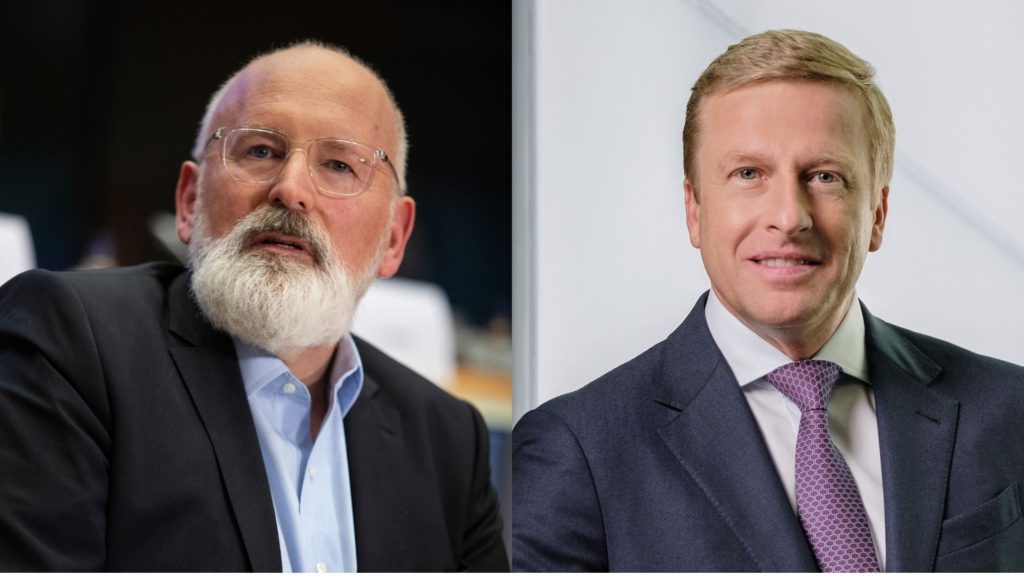European Automakers on Europe’s aims to become the world’s first climate-neutral continent by 2050 and European Green Deal.
The EU is fighting climate change through ambitious policies at home and close cooperation with international partners. It is already on track to meet its greenhouse gas emissions reduction target for 2020 and has put forward a plan to further cut emissions by at least 55% by 2030.
By 2050, Europe aims to become the world’s first climate-neutral continent.
European Green Deal is an ambitious package of measures ranging from ambitiously cutting greenhouse gas emissions, to investing in cutting-edge research and innovation, to preserving Europe’s natural environment.
First climate action initiatives under the Green Deal include:
- European Climate Law to enshrine the 2050 climate-neutrality objective into EU law
- European Climate Pact to engage citizens and all parts of society in climate action
- 2030 Climate Target Plan to further reduce net greenhouse gas emissions by at least 55% by 2030
- New EU Strategy on Climate Adaptation to make Europe a climate-resilient society by 2050, fully adapted to the unavoidable impacts of climate change.
By June 2021, the Commission will also review and, where necessary, propose to revise all relevant policy instruments to deliver additional greenhouse gas emissions reductions.
[email-subscribers-form id=”1″]

Also Read: Ford committed to have all its vehicles zero-emission by mid-2026
Under the umbrella of the European Automobile Manufacturers’ Association (ACEA), the CEOs of Europe’s carmakers met last week with the European Commission Vice-President for the European Green Deal, Frans Timmermans, for a constructive discussion on climate change and CO2 emissions. The meeting between ACEA and Mr. Timmermans was held ahead of the upcoming reviews of the CO2 Regulation for cars and vans as well as the Alternative Fuels Infrastructure Directive (AFID).
The European Automobile Manufacturers’ Association (ACEA) represents the 15 major Europe-based car, van, truck, and bus makers: BMW Group, CNH Industrial, DAF Trucks, Daimler, Ferrari, Ford of Europe, Honda Motor Europe, Hyundai Motor Europe, Jaguar Land Rover, Renault Group, Stellantis, Toyota Motor Europe, Volkswagen Group, Volvo Cars, and Volvo Group.
EU policymakers and the auto industry share the European Green Deal’s vision of climate neutrality by 2050,” stated Oliver Zipse, ACEA President and CEO of BMW. “But the Green Deal needs to live up to its name; we need a real ‘deal’ between our industry and EU governments to achieve the overarching goal of lowering the CO2 emissions of the transport sector. On this path, every available technology needs to play its role.”
“We are bringing the required technology to the market at a very high pace and are committed to delivering more zero-emissions vehicles. But we need governments to deliver on the charging and refueling infrastructure needed to power them at the same high pace. We are pleased that Mr. Timmermans recognized that these tasks are intrinsically interconnected,” said Zipse.
European Automakers on Europe’s aims to become the world’s first climate-neutral continent by 2050. Frans Timmermans: “We need to move towards near-zero-emission transport as soon as possible. It is an enormous challenge, but I am confident the European car industry is up to the task. Our car manufacturers are innovative and experienced in producing affordable cars. Our policies will be designed to support the shift: stricter emissions norms to boost the uptake of clean vehicles, and investments in charging infrastructure and battery production to support the already rapid growth. By managing this transition we will make it a just transition. And together we will make electric driving accessible to all.”

